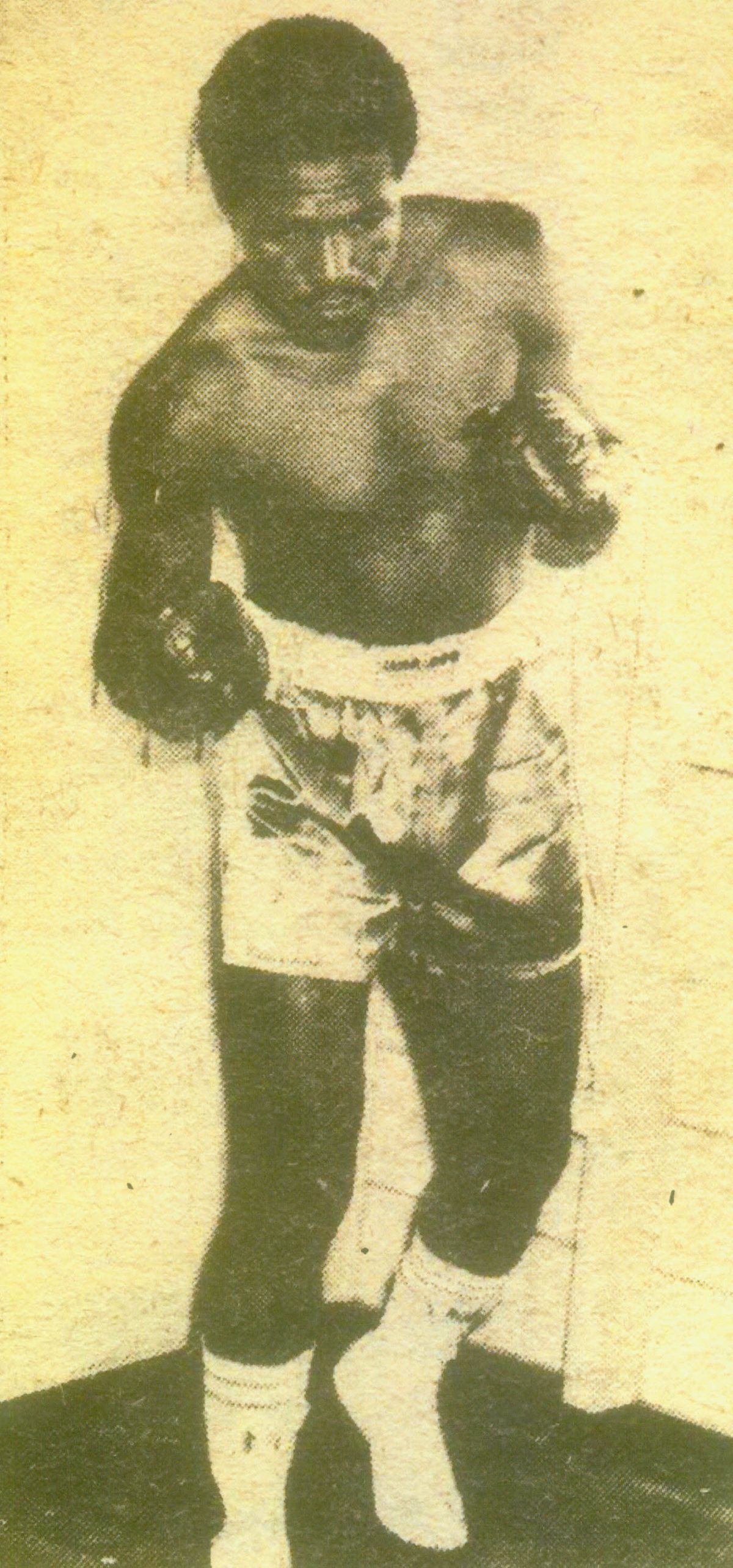In my last article I looked at the legendary Patrick Forde, rated among the crème-de la crème of Guyanese boxers, where I described him as possibly one of, if not the greatest professional boxer born here.
However, if ever there was a boxer who could challenge Forde (or our claim that Forde is the GOAT), that boxer would be none other than Terrence Lennox Blackmore.
Born July 10, 1950 at 185 Waterloo Street, Blackmore moved to East La Penitence when he was just five-years-old.
He had his first and only amateur bout in 1971 losing on points to Wencel Thomas.
For a while though it was football that held his attention, football that he played religiously in the streets of East La Penitence and elsewhere. He was a member of the Guyana Rice Board football team that played against a Suriname side and lost 0-1 at the Georgetown Football Club ground, Bourda.
Boxing, then, seemed furthest from his mind but all that was to change in the proverbial blink of an eye.
His first trainer was Humber Green and, after he turned professional, Fitzroy Whyte was his trainer for his first pro bout against Kid Carrington. That bout took place on January 27, 1974 and Blackmore won over four rounds for a princely purse of 40 dollars.
A win against Roy Smith in his next encounter gave the false impression that his career was up and running but Terry Greene handed the rising star his first professional loss, a points defeat over six rounds on May 5, 1974.
That fight proved not to be a setback but somewhat of a motivational factor.
A mere two fights later he avenged that defeat, scoring a points win in a 10-round lightweight contest in September that same year.
Then the wins came. He defeated Richardo Croquer (TKO) and Michael Drayton (points) to set the stage for his assault for the lightweight title of Guyana. His opponent, Greene.
In the first fight on June 15, 1975, Blackmore won by a TKO in round 14 of the 15 round contest.
The two would duke it out again on September 7, 1975 for the Guyana lightweight title with Blackmore winning a points decision in the 15-round event.
Blackmore would continue to rack up the wins.
Fitzroy Guisseppe, Percy Hayles, Errol West and Claude Noel of Trinidad twice all came and left vanquished by the Guyanese lightweight counter punching champ.
Historic title triumph —— subhead
Then in 1977, he was billed to fight for the Commonwealth (British Empire) title.
It was, at last, an opportunity, a historic fight, with the knowledge that finally, he was beginning to reap the fruits of his talent and hard work.
Surely, a win would one day lead to a world title fight.
Blackmore did create history.
He went to Lagos, Nigeria and conquered Jonathan Dele, becoming the first Guyanese to win the Commonwealth title, with a 15 rounds points win on October 1, 1977 in Lagos, Nigeria.
He subsequently lost that title to Hogan Jimoh but a string of victories over opponents such as Dale Hernandez and Eddie Marcelle meant that a world title fight would soon beckon.
That fight against Aaron Pryor for the World Boxing Association super lightweight title took place on June27, 1981 at Caesar’s Palace, Las Vegas.
In a bout scheduled for 15 rounds Blackmore lost in the second round by a TKO.
He continued to soldier on taking on Antonio Cervantes and others before winning his last bout on June 15, 1986 knocking out Wayne Harris in nine rounds for the lightweight title title of Guyana.
He retired in 1987 with a record of 30 fights, 25 wins and five losses. With 14 kayoes.
Blackmore credits the late Lennox Beckles for inspiring him to become the fighter that he later became. He also gushed about Vernon Lewis, with whom he often sparred before fights.
“Whenever I went into the ring in those days, I knew that I was in the best of condition. He (Lewis) was the best sparring partner I ever had,” he told Stabroek Sport recently during a telephone conversation.
Later on Blackmore became the first Guyanese trainer to produce a world champion in Julio Cesar Green. Green defeated William Joppy over 12 rounds for the WBA middleweight title on August 23 1997 at Madison Square Garden USA. He was also the trainer of two female boxers who later turned world champions in Jill Matthews who won the IFBA and IWBF flyweight title defeating Anissa Zamarron over 10 rounds on march 21 1998 in Atlantic City USA while Aasa Maria Sandell won the World Boxing Empire middleweight title on March 31 2007 defeating Dakota Stone over six rounds in Sweden.
According to Blackmore once the coronavirus pandemic is over he plans to return home to train Guyanese boxers.
He would be very welcome. (Sports Editor’s note:Eion Jardine refereed his first professional fight on August 27, 1985. Since then he has refereed a total of 381 fights, with 92 of them being title fights)




